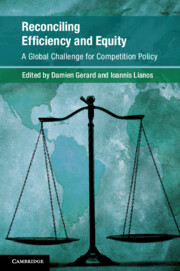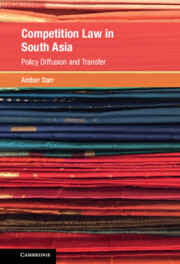Natural Monopolies in Digital Platform Markets
Competition policy debates on digital platform markets are often premised on the idea that market fragmentation and the standard forces of competition and entry may provide a potential solution to excessive concentration and market power. In this work, Francesco Ducci provides readers with a different perspective based on the theoretical lens of natural monopoly. Ducci explores this framework through the development of three case studies on horizontal search, e-commerce marketplaces, and ride-hailing platforms, investigating the strength and limit of potential (and often heterogeneous) sources of natural monopoly at play in each industry. Building on these case studies, the book then derives from the application of the natural monopoly framework general policy implications for digital industries by identifying the respective institutional flaws and shortcomings of ex ante and ex post approaches to market power as one of the central challenges in digital platform markets.
- Highlights the heterogeneous economic features and the regulatory issues at play in specific digital markets
- Expands the discussion on the role of competition law by addressing gaps in the current legal framework based on the lens of natural monopolies
- Discusses policy approaches that account for the often-overlooked institutional dimension of intervention
Reviews & endorsements
'This is a powerful, erudite, and timely book that examines the problem of the digital platforms and how to control their power through every lens of competition and regulation, institutionally, legally, and economically. Offering perspectives through both the microscope and the telescope, it concludes that we must increase the complementarity between ex ante and ex post forms of interventions, with different tools and in different mixes as dictated by the platform and the market and how well competition can work.' Eleanor M. Fox, Walter J. Derenberg Professor of Trade Regulation, New York University School of Law
'The so-called 'tech titans' have come to preoccupy competition agencies and scholarly commentators around the world. Contrary to extreme prescriptions such as 'break up' or 'do nothing,' Dr Ducci's book reflects a more subtle and surgical approach to manifestations of dominance in multi-sided markets, one that may be more consistent with consumer welfare than opposing extremes.' Michael Trebilcock, Professor of Law, University of Toronto
'Schumpeter meets regulators on digital platforms in the 21st century. A fascinating book that explores the delicate interface between competition policy and regulation. It comes at the most opportune time.' Tommaso Valletti, Head of the Department of Economics and Public Policy, Imperial College London
'… this compelling volume belongs in any collection encompassing digital commerce regulation or media law.' T. Brennan, Choice
Product details
July 2020Hardback
9781108491143
220 pages
235 × 155 × 16 mm
0.45kg
Not yet published - available from
Table of Contents
- 1. Introduction
- 2. Technological change and natural monopolies in digital industries
- 3. Horizontal search
- 4. E-commerce marketplaces
- 5. Ride-hailing platforms
- 6. The institutional dimension of alternative policy options
- 7. Conclusion
- Bibliography.






